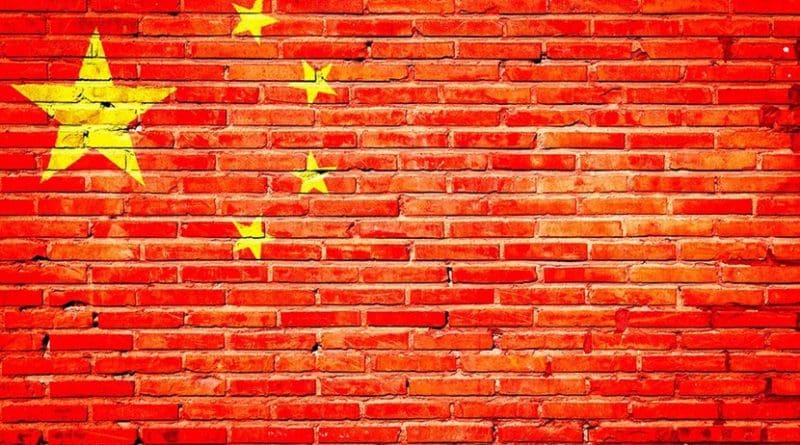China’s Claims For ‘Chinese Exceptionalism’ Not Acceded Globally – Analysis
China’s fixative obsession that China with its exponentially increasing military power and economic strengths be globally accorded the geopolitical and strategic status of “Chinese Exceptionalism” was first analysed by me in my Book: ‘China-India Military Confrontation: 21st Century Perspectives’ (2015). It was ruled out then and the reasons advanced earlier are more than valid today.
Historically, exponential military power when irresponsibly flaunted and exercised gets neutralised and economic power extravagantly expended in sustaining the pursuit of exponential military power. China in 2022 seems to be oblivious to this reality.
Some pertinent observations made by me in the concluding chapters of my Book quoted above merit reproduction to provide the basis of ruling out even more vehemently in 2022 as to why the global community cannot accede China’s claims for :Chinese Exceptionalism”:
- “China expects and will demand of the world that China in the 21st Century be extended the rights and privileges of “Chinese Exceptionalism” in global affairs in the same manner as the world acknowledges United States and “United States Exceptionalism”.
- “China forgets that the United States earned the right and privilege to be conceded “American Exceptionalism” …. The
United States fought two World Wars along with Western Europe to uphold a democratic free world against Hitler’s aggressive instincts and aggressive nationalism”.
- “China is unlikely to gain worldwide respect and acceptability to qualify for being accorded “Chinese Exceptionalism”
- “China cannot command respect by billions of dollars investments in small countries in the name of development but in actual fact tying them down such nations into strategic bondage”.
- “And, the picture becomes more dismal when to Chinese aggressive brinkmanship displayed in Indo Pacific Asia in 21st Century is added the strategic arrogance and Chinese “Hyper-Nationalism’ referred above”
China’s major impediments in being extended “Chinese Exceptionalism” recognition analysed by me in 2015 not only stand valid in 2022 but the case against China in this respect gets further reinforced by China’s magnifying propensity to impose ‘Chinese Hegemony’ and challenge the existing World Order based on respect for global institutions and international conventions.
China’s regional acceptability in Indo Pacific and globally amongst Major Powers of the world as a responsible stakeholder in management of regional and global challenges to security and stability is dismally poor.
Since 2015, China’s rampage in South China Sea has not diminished. China relations with Japan are tense and emerging as more confrontationist due to China’s military provocations against Japan. China escalated its military confrontation with India along China Occupied Tibet-India Borders to military clashes in Eastern Ladakh. China has not even spared countries like Indonesia and Malaysia in its South China Sea depredations.
The United States, still the Superpower, however much China will like to project US as a ‘Declining Power’ has dispensed with its strategic molly-coddling of China. China has entered a phase of acute confrontation with United States which if taken to its logical conclusion by continued Chinese propensity for brinkmanship could result in a major armed conflict. China would end up as the major loser.
In terms of regional and global threat perceptions affecting security and stability the perception of the “China Threat” is acquiring more sharper and threatening contours not only in Indo Pacific but even as far as NATO.
This widening of “China Threat’ perceptions geographically from Indo Pacific to Europe has spawned in its wake emergence of countervailing security coalitions and groupings like the QUAD and AUKUS and initial beginnings of NATO Nations strategic presence in Indo Pacific. The cohesiveness and resolve of such groupings could solidify if China persists in its confrontationist and brinkmanship policies.
China has further antagonised nations that it incorporated into its strategic embrace through ‘debt diplomacy’ dubious strategy along its Overland Silk Route and Maritime Silk Route. Having realised that China has ensnared them into ‘debt traps’ a pushback is deiscernible.China stands to lose billions of dollars besides its acceptance in Indo Pacific and worldwide.
China in 2022 stands isolated in the comity of nations polarised against it by China’s acts of commission and omission in the heady exercise of its new-found military power and economic strengths which led it to not only to aggression on its peripheries but also to challenge the United States and to relegate its present strategic cohort—Russia, to the status of a subordinate satellite.
China today in 2022 induces more fear and strategic concerns reminiscent of Hitler’s Germany on the eve of the Second World War. And, like the Second World War, Major Powers led by the United States are belatedly realising that China cannot irretrievably be “absorbed” into a ‘rules-bas society’ respecting international conventions and institutions and that the enlarging ‘China Threat; has to be met head-on.
Concluding, where does the space exist in light of the analysis above, for the global community to accede to China’s claims for “Chinese Exceptionalism” to be acceded and recognised by Major Powers and the global community? China does not seem to have learnt the lessons of the Second World War or nearer in time the lessons emerging from the disintegration of the Soviet Union.

